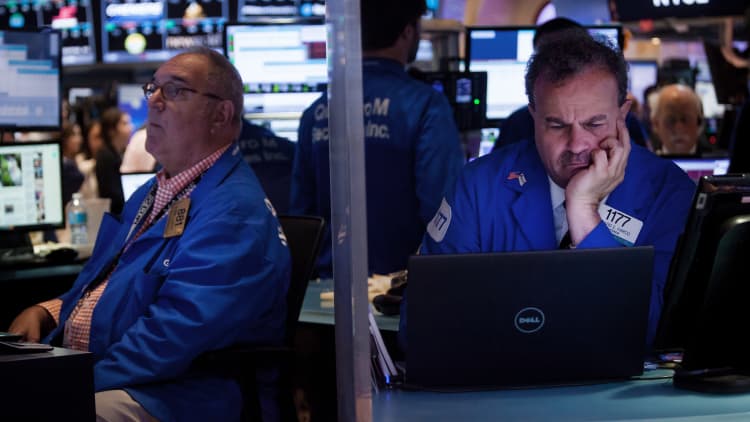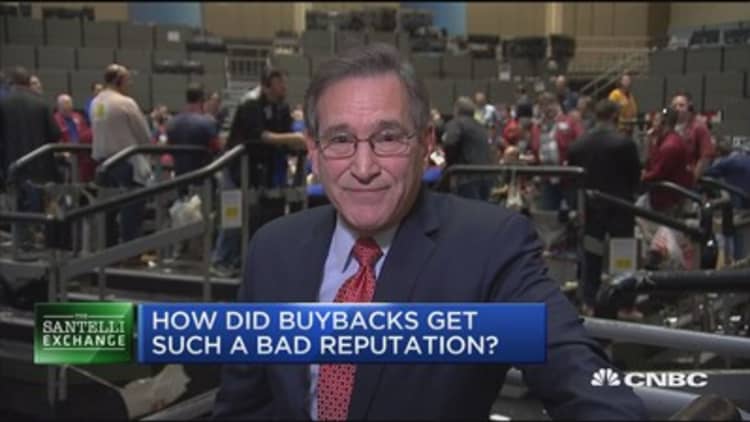
Since President Donald Trump signed the tax bill, companies have announced about $170.8 billion in stock buybacks, the most ever for this early in the year.
"There's a whole stock pile of cash that just came back. Take Cisco. We know they had $68 billion trapped overseas, and they're going to take $25 billion of that and buy back stock," said Art Hogan, chief market strategist at B. Riley FBR.
Birinyi Associates, which has tracked buybacks since the 1980s, said this year's level, from Jan. 1 through Feb. 15, is the most ever, topping $147.2 billion in the period of 2016, which had been the busiest at this point of the year. During that period of 2016, the market was working its way out of a roughly 14 percent correction.
"It acts as a floor, you have a natural buyer in there," said Jeff Rubin, director of research at Birinyi. Rubin said companies have been large buyers for a number of years now, and they have a large amount of cash already available for purchases.
"At the end of the third quarter, companies had dry powder of over $800 billion," he said. Fourth quarter actual purchases are not yet available.
Rubin said this year became the largest with the latest rush of buybacks in the last two days, including Cisco and AMAT with $6 billion.
The tax bill cut the corporate tax rate, from 35 percent to 21 percent, and took aim at rules that had made it preferable for companies to stash foreign earnings overseas rather than spend them at home.
Democratic lawmakers who have been critical of the GOP bill have claimed it would be used for such things as share buybacks to enrich shareholders, rather than for capital expenditures or improving worker pay.
Second to Cisco is Wells Fargo, which was buying $22.6 billion shares. Others include Pepsi at $15 billion. Other companies announcing buybacks this year include Amgen, with $10 billion; Alphabet, $8.6 billion; Visa, $7.5 billion, eBay, $6 billion; Mondelez, $6 billion; Lowe's Cos, $5 billion; Valero, $2.5 billion, and Eastman Chemical, at $2 billion.
Hogan said the buyback news should be good for the market.
"If they're going to use it judiciously I think it's going to be great. You're either going to be paying a dividend, buying shares, or you'll find something accretive like an acquisition or investing in your business," said Hogan. "When CEOs are asked about it, it's all of the above and buybacks are in there."
"It helps drive earnings even higher than what our earnings estimates already are for 2018," said Hogan.
Corporate buyback announcements through Feb. 15
2018 YTD $170.8 billion
2017 YTD $75.7 billion
2016 YTD $147.2 billion
2015 YTD $99.9 billion
2014 YTD $91.8 billion
2013 YTD $97.7 billion
2012 YTD $47 billion
2011 YTD $87.9 billion
2010 YTD $43.4 billion
2009 YTD $5.0 billion
2008 YTD $72.0 billion
2007 YTD $105.2 billion
Source: Birinyi Associates
WATCH: How did buybacks get such a bad rap?



